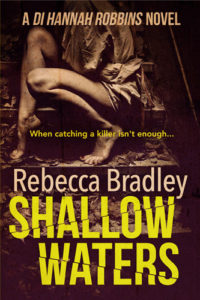
This Writing Crime post is going to be a little different today. Instead of a factual post on points of law, policy or procedure, I’m writing a discussion piece.
Why is that?
Because I regularly see the debate around crime fiction and the protagonist and how factually correct or incorrect it is to have a Detective Inspector or Detective Chief Inspector running around, making the inquiries, interviewing the witnesses and the offender and basically, doing everything that is needed for the investigation. When the reality is the DI/DCI is the SIO (Senior Investigating Officer) and is running the investigation from the incident room. Going to briefings, to meetings, doing all the dull and boring paperwork that needs to be kept up-to-date while all the legwork is handed to their staff.
So, why, as someone who writes crime fiction and someone who knows this, do I have a DI as my protagonist?
To answer this question you need to look again at the roles of the DI and the DC (Detective Constable) or DS (Detective Sergeant).
I’ve already informed you what the role of the DI is in a major inquiry.
But what of your lowly DC?
This is your person who actions everything. They go out and speak to witnesses, takes statements, does the legwork, interviews offenders, will do a foot chase if one really needs doing. But, the keyword within the previous sentences is actions.
In a major inquiry you set HOLMES (Home Office Large Major Enquiry System) running. HOLMES is a computer system that keeps track of every piece of information that comes into the incident room. It can cross-reference information and find links you may not notice. Everything is input into it. And out from it come Actions. These are the tasks that need doing. You had ten people at the bar on Monday night when Fred was stabbed to death by the strange who walked through the door and then walked back out again. You have ten actions for ten statements. You send your DCs out to take these statements. As well as the many other Actions that will be created.
Your homicide team is a lot larger than a novel indicates. But because readers don’t want to read a policing manual they want a jolly good story, they only need to know about a few characters, so you keep your team small, or you keep the named members of your team small. So, we only really read about DC Jones doing all the work.
The reality is that DC Jones is being given her jobs by someone using the HOLMES. She has no thought process on the murder inquiry. She doesn’t think for herself. She is told what to do and she reports every move back to her DI. DI Blake.
Everyone who complains about a DI being the protagonist and that them running about is not factually true, is correct. DC Jones is the one who should be out there speaking to people and interviewing people. But, she isn’t making decisions.
DI Blake on the other hand. She, she makes the decisions. She can decide who to speak to next, what to ignore and what to progress. Yes, she tells someone else to go out and do it, but she is the one with the power. She has her own autonomy.
So, you tell me which is more incorrect in a novel, a DC who is making decisions they shouldn’t be making or a DI who is out in the world when they should be stuck behind a desk?
I’ll tell you.
There isn’t a correct answer. Fiction is just that, fiction. And because the reality of policing doesn’t provide us with the perfect protagonist we just have to create our own based on the facts we have on how the team functions.
And that is why my DI Hannah Robbins is a hands-on DI and why other writers and friends of mine have chosen to have DCs as protagonists.
Who would you choose to have as a protagonist?
You can catch up with all previous posts in the Writing Crime series, HERE
 Rebecca Bradley is a retired UK police detective with over 15 years UK policing experience. Seven of those years were in uniform and the rest in a specialist investigative department where She handled multiple, serious and complex investigations. She is now a crime writer and offers a police procedural fact-checking service, available to all crime writers setting their work in England or Wales.
Rebecca Bradley is a retired UK police detective with over 15 years UK policing experience. Seven of those years were in uniform and the rest in a specialist investigative department where She handled multiple, serious and complex investigations. She is now a crime writer and offers a police procedural fact-checking service, available to all crime writers setting their work in England or Wales.
Please see THIS POST for further details.
Rebecca Bradley is a retired UK police detective and now a crime writer.
She writes the DI Hannah Robbins series.
 When catching a killer isn’t enough…
When catching a killer isn’t enough…
The naked, battered body of an unidentified teenager is found dumped in an alleyway and post-mortem finds evidence of a harrowing series of events.
Another teenage death with the same MO pushes DI Hannah Robbins and her team in the Nottingham City division Major Crimes Unit, to their limits, and across county borders. In a race against the clock, they attempt to unpick a thick web of lies and deceit to uncover the truth behind the deaths.
But it doesn’t stop there.
Just how far are the team willing to push themselves to save the next girl?



A really interesting post. Thank you Rebecca. I’m off to check out your books now!
Thanks, Paula! If you read one I do hope you enjoy it!
A really interesting post. I prefer seeing a more hands on role for a DI, you find in fiction they have the authority to make real time decisions and also the great ability to follow a hunch or a gut instinct. As a reader the can quicken the pace of a story and keep me avidly turning pages. Fiction and some creative leeway has its place.
Exactly, Yvonne. That was the reasoning behind my decision. It’s not realistic, and I’m here on a Monday saying how the real police work, but real police work is pretty dull most of the time!
This is really interesting, Rebecca. And it explains why so many crime stories are told from the perspective of the DI or sometimes DCI. I’ve read a few very good ones (such as Harry Bingham’s Fiona Griffiths stories and Jane Casey’s Maeve Kerrigan series) that feature DCs as protagonists. But you’re right; they play a very different role. Lots to think about!
Yes, I know a couple of other great authors who also use DCs and because it’s not realistic that DIs run around doing the legwork. But I like that the DI makes their own decisions whereas the DC really is only going out doing what is told of them. It is swings and roundabouts. You have to make your protagonist out of different parts.
Thank you so much, Rebecca, I’ve wanted an answer to this question for so long and now I finally have one! And Peter James uses a Det. Supt as his protagonist and it hasn’t exactly held him back! 🙂
Exactly. It has been an age-old argument. And one that will continue by many – who haven’t read this post! There are pros and cons on each side. And each writer will make their own decisions. No one is wrong.
Hi Rebecca. What about a DS? I’ve used a DS for just the reasons you describe; a DI makes the decisions but doesn’t get “out there” and a DC gets “out there” but just follows instructions? Is a DS a good middle ground, stretching credibility a little less than either of the others?